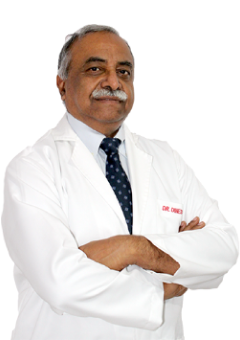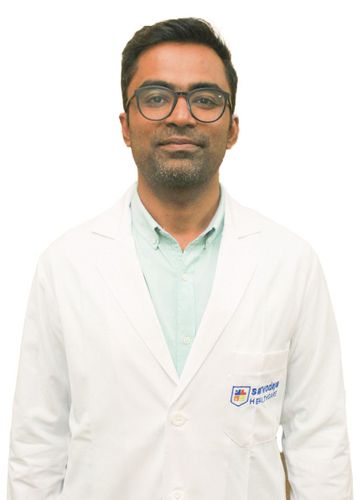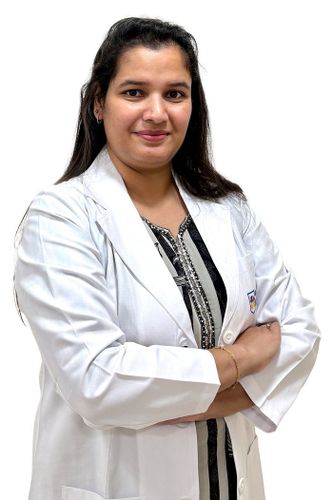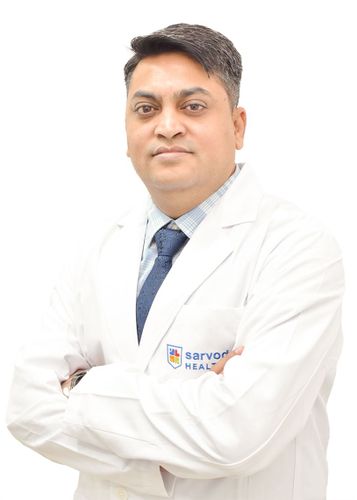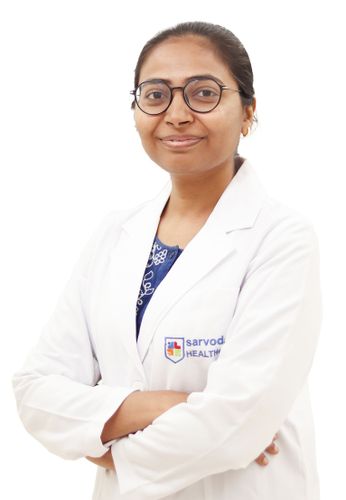Overview
Stomach (gastric) cancer often develops quietly, with early symptoms that can be subtle or mistaken for indigestion. Timely evaluation improves outcomes. At Sarvodaya Cancer Institute, we provide comprehensive Stomach Cancer Treatment in Faridabad, Delhi NCR, combining expert diagnostics, advanced surgery, precision radiotherapy, modern systemic therapies, and strong supportive care.
Every treatment plan is personalised by a multidisciplinary team to protect both survival and quality of life. When appropriate, minimally invasive and robotic techniques are used to remove the tumour precisely, allowing quicker recovery and greater comfort. These procedures are guided by an experienced Stomach Cancer specialist in Delhi NCR.
Symptoms of Stomach Cancer
- Persistent indigestion
- Bloating after meals
- Heartburn
- Upper abdominal discomfort
- Ongoing nausea or vomiting
- Loss of appetite
- Early fullness after eating
- Unexplained weight loss
- Fatigue or general weakness
- Iron-deficiency anaemia
- Black or blood-streaked stools
Stomach Cancer causes
- Infection and inflammation
- Lifestyle and diet
- Medical and genetic factors
- Environmental factors
- Age and sex
Diagnosis of Stomach Cancer
A fast, accurate diagnosis identifies the specific stomach cancer types, determines disease stage, and assesses overall health, ensuring the most effective and safe treatment plan for each patient.- Clinical assessment and labs – Review symptoms, investigate anaemia, and perform baseline blood tests to evaluate general health and readiness for treatment.
- Upper GI endoscopy (OGD) with biopsy – Gold standard to visualise lesions, collect tissue, and test HER2, MSI, PD-L1, plus other relevant biomarkers for treatment planning.
- Staging imaging – Use contrast-enhanced CT chest–abdomen–pelvis, selective PET-CT, and EUS for early lesions to assess tumour spread and depth of invasion.
- Staging laparoscopy (selected cases) – Identifies hidden peritoneal disease and enables cytology sampling to inform surgical decisions and avoid unnecessary major operations.
- Multidisciplinary tumour board – At our trusted Stomach Cancer Hospital in Faridabad, surgeons, oncologists, radiologists, pathologists, and dietitians create a tailored treatment plan for optimal outcomes.
Treatment of Stomach Cancer
- Surgery (Open, Laparoscopic, Robotic) – Subtotal or total gastrectomy with D2 lymphadenectomy is standard for resectable disease; minimally invasive or robotic approaches may reduce blood loss and aid recovery.
- Perioperative and adjuvant therapy – Chemotherapy, and chemoradiation in selected cases, enhances cure rates when given before or after surgery for improved long-term outcomes.
- Advanced/metastatic pathways – Treatment includes chemotherapy, targeted therapies like HER2-directed agents, and immunotherapy for patients with biomarker-selected tumours to extend survival and control disease progression.
- Precision radiotherapy – IMRT/IGRT applied in selected scenarios to provide local tumour control, relieve symptoms, and preserve surrounding healthy tissue.
- Nutrition and supportive care – At our centre for stomach cancer surgery in Delhi NCR, dieticians, pain specialists, and counsellors support nutrition, symptom control, and emotional wellbeing throughout care.
Prevention & Lifestyle Modification
At Sarvodaya Hospital, we guide you at every stage, helping you address stomach cancer risk factors and maintain digestive health. Here’s how you can protect your stomach and overall well-being:
- Quit smoking and limit alcohol – Avoid tobacco entirely and keep alcohol consumption low to reduce damage to the stomach lining and lower cancer risk.
- Follow a balanced, plant-forward diet – Eat plenty of fresh vegetables, fruits, whole grains, and legumes; limit high-salt, smoked, and pickled foods to protect stomach health.
- Maintain healthy weight and stay active – Combine regular aerobic and resistance exercise with a balanced diet to reduce obesity-related cancer risks and improve digestion.
- Test and treat H. pylori – Where indicated, seek screening for H. pylori infection and follow prescribed treatment to prevent long-term stomach damage.
- Manage reflux and GERD – Address persistent heartburn or acid reflux early to protect the stomach lining and reduce irritation over time.
- Ensure food safety – Practise safe food storage and proper hygiene to prevent contamination and reduce infection-related cancer risks.
- Promptly report symptoms – Unexplained indigestion, early fullness, anaemia, or weight loss should be evaluated quickly at the Best Cancer Hospital in Delhi NCR for early detection and effective treatment.
Pre–Post Treatment Lifestyle Modifications
Pre treatment
- Adopt a protein‑rich, nutrient‑dense diet
- Regular walking and light resistance
- Optimise diabetes, blood pressure, and heart/lung status
- Address infection, nausea, pain, and reflux early
Post treatment
- Take diet as advised
- Keep incisions clean/dry
- Seek urgent help for fever, chest pain, severe abdominal pain, or calf swelling


